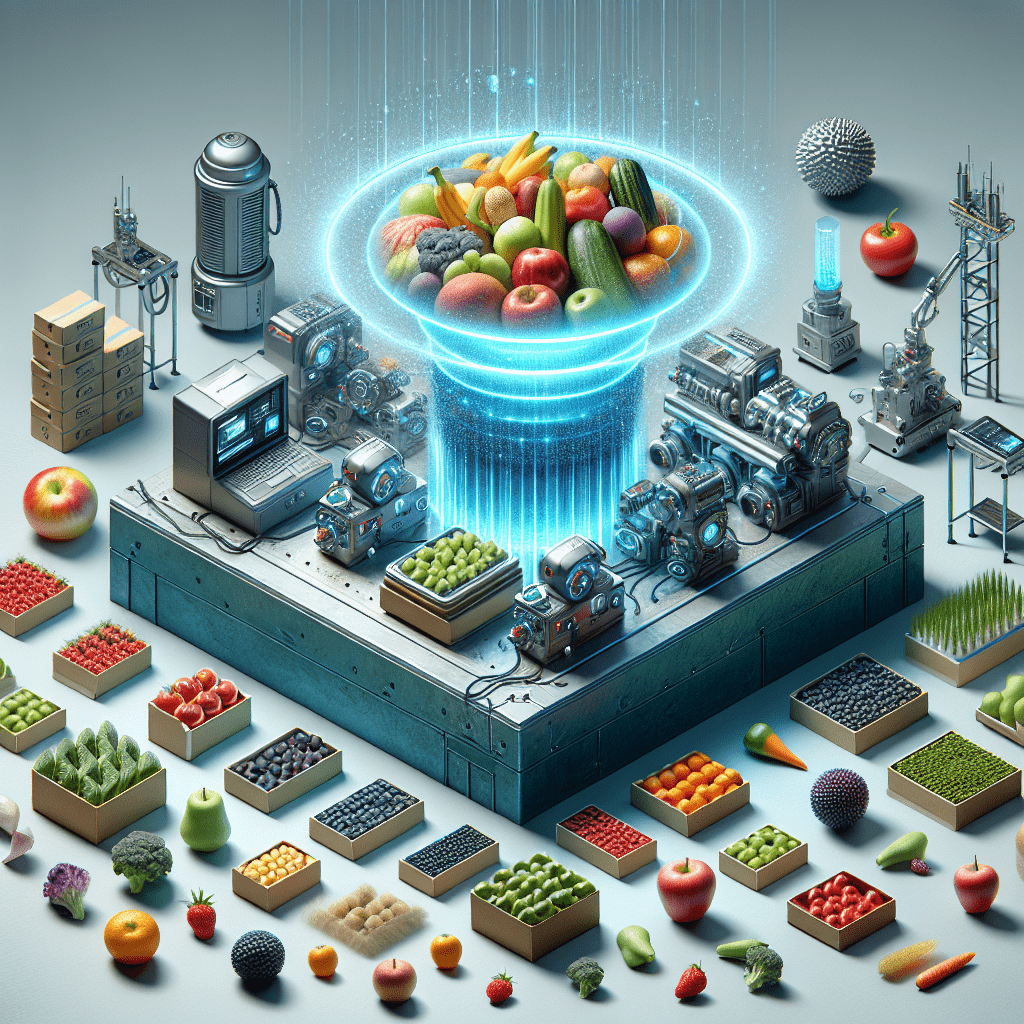[ad_1]
In the quest to tackle food wastage and ensure a stable supply chain, various high-tech innovations in food preservation are playing a pivotal role. By extending the shelf life of food products, these technological advances are not only making food systems more efficient but are also contributing significantly to sustainability. This article delves into some of the most promising innovations in this space, highlighting how they are transforming the industry.
1. Smart Packaging Solutions
One of the groundbreaking advancements in food preservation is the development of smart packaging solutions. From incorporating sensors that track freshness to using materials that can effectively block UV light, these smarter packages are revolutionizing how we store and preserve food. Technologies such as Time-Temperature Indicators (TTIs) and Radio Frequency Identification (RFID) tags offer real-time insights into the condition of the food, thereby helping in reducing waste and enhancing food safety.
2. Innovative Coating Technologies
Edible coatings are another novel approach to extending the shelf life of fresh produce. These coatings, made from naturally derived materials, act as barriers to moisture and gases, thus slowing down the degradation process. Companies like Apeel Sciences have pioneered the development of such coatings, which can keep fruits and vegetables fresh for twice or even thrice as long as traditional methods, without the need for refrigeration.
3. Atmospheric Packaging
Modified Atmosphere Packaging (MAP) and Controlled Atmosphere Packaging (CAP) are technologies that alter the composition of the air surrounding the packaged food. By adjusting the levels of oxygen, carbon dioxide, and nitrogen, these packaging methods can considerably slow down the ripening and decay of food products. As a result, everything from meat to fresh produce can maintain its freshness and nutritional value for a longer period.
4. High-Pressure Processing
High-Pressure Processing (HPP) is a non-thermal food preservation method that uses extremely high pressure to inactivate pathogens and enzymes that cause food spoilage. Unlike traditional heat-based preservation techniques, HPP can extend the shelf life of products without affecting their texture, flavor, or nutritional value. It’s particularly effective for juices, dairy products, and seafood.
5. Cold Plasma Technology
An emerging innovation in the field of food preservation is the use of cold plasma technology. By exposing food products to ionized gas, this method can effectively kill pathogens and extend shelf life without the use of chemicals or the application of heat. Cold plasma technology represents a significant leap forward in our ability to keep food safe and fresh for longer periods.
Key Takeaways
- High-tech solutions in food preservation are crucial for reducing food waste and enhancing sustainability.
- Smart packaging solutions, including those with freshness sensors and UV-blocking capabilities, are transforming food storage and safety.
- Edible coatings and atmospheric packaging are extending the freshness of fruits, vegetables, and other perishables.
- High-Pressure Processing (HPP) and Cold Plasma technology offer effective, non-thermal means of extending food shelf life while maintaining nutritional quality.
FAQs
- Q: What is the significance of extending the shelf life of food?
- A: Extending the shelf life of food is essential to reduce waste, save costs, improve food security, and minimize environmental impact by requiring less energy for production and storage.
- Q: Are these high-tech food preservation methods safe?
- A: Yes, these methods are developed and tested rigorously for safety and efficacy. Regulatory bodies assess and approve these technologies before they can be widely adopted.
- Q: Can these technologies affect the taste or nutritional value of food?
- A: Most high-tech solutions for food preservation are designed to maintain, if not enhance, the taste and nutritional value of food. Techniques like HPP, for example, preserve food without heating, thus retaining its original flavor and nutrients.
- Q: Are sustainable technologies being developed for food preservation?
- A: Yes, sustainability is a key focus in the development of new food preservation technologies. Innovations are aiming not only to extend shelf life and reduce waste but also to use less energy and fewer resources in the process.
[ad_2]

Leave a Reply